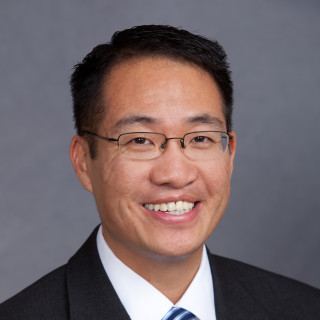“Life moves pretty fast. If you don’t stop and look around once in awhile, you could miss it.”
-Ferris Bueller’s Day Off
What on earth could a Ferris Bueller quote have to do with medicine?
One Friday morning in April 2011, I set off to the VA to meet my team for inpatient rounds. I was a bit surprised that we had only a census of 4 patients — the lightest by far of the 3 weeks I was on service. I decided to seize the opportunity to conduct extra teaching with my team — a senior resident, 2 interns, and 2 third-year medical students. I then checked in, and asked, “How are you all doing? Anything you’d like to talk about — careers or any concerns?” One of the students, Chandra Keebler, asked, “We’re juggling a lot. We’re applying for residency and studying. How do you still enjoy what’s happening now, while you’re going for the next step — residency, a job, or something like that?”
Ah…the $64,000 question!
That query opened up a thoughtful, and wide-ranging discussion; on balancing our career goals with time for our families, friends, and interests outside of medicine. The senior resident, Charles Gabbert, remarked, “Thanks for talking about this. We all think about it, and it’s so important, but we don’t have time to discuss it.”
Since then, I’ve continued to engage with every medical student I’ve worked with in a dialogue about two crucial topics that are not official objectives of our clinical curriculum: meaning and balance. Here, in no particular order, are 3 Ms you may find useful as you continue your quest for both.
1. Mission
Remember when you were an idealistic med student, resident…or even attending? I hope you still have remnants of this quality! I think of forming and reminding yourself of your mission as viewing an Impressionist painting. To fully appreciate it, you have to step back and take in the whole. Yet, that work of art can’t exist without the individual brushstrokes. Every so often, take the time to reconnect with the elements that drive your larger purpose; specific reasons that propelled you into this profession, which saw you through the hours of studying, downing gallons of coffee, and subsisting on little or no sleep when on call. Remembering what sparked your mission is especially important when you’re having a rough day — when prior authorizations are threatening to tug your morale downward; or when your EMR inbox seems to endlessly expand. Seeing how the individual facets form the larger picture can play a part in lifting some of the fog of daily stressors.
How can you shift your perspective to find or rediscover your mission? Job crafting is a term coined by Jane Dutton, PhD, distinguished University Professor of Business Administration and Psychology at the University of Michigan Ross School of Business and Amy Wrzesniewski, PhD, Professor of Organizational Behavior at the Yale School of Management. They originally studied 28 janitorial staff at a university hospital, and found that some reported marked engagement and satisfaction with their work, because they redefined how they saw what they do, and took extra actions — such as spending time talking with patients and their families. These individuals felt that they were an integral part of the medical team, by helping patients heal.
2. Mentoring
When we teach, we learn; and when we give, we receive so much more in return. We are all both mentors, and mentees. One of my mentors, Gerry Manecke, MD, tells me, “I feel like I learn so much from our conversations.” Apart from his being too kind, he nicely captures that we’re always growing, even when we’re helping advise others.
UC Davis has tremendous resources for both mentors and mentees including articles on mentoring topics, such as “Difficult Issues in Mentoring: Recommendations on Making the ‘Undiscussable’ Discussable.” I volunteered last fall to be one of the participants for a colleague’s study on mentoring. Gita Mehta, MD, placed residents and junior faculty members in scenarios with senior faculty members. Much like a standardized patient interview, we’d conduct an interaction, including seeking advice from a mentor who was harried and not the best fit. Senior faculty members and Julie Schweitzer, PhD, and Director, UC Davis Schools of Health Mentoring Academy, observed, and offered observations and advice after.
Keep in mind that just while you’re seeking inspiration, you just may very well be inspiring someone else.
3. Mindfulness
Mindfulness is not just for those who meditate! I’m sure you’ve seen the proliferation of books, courses, and media attention related to being mindful. Mindfulness has been taught and tried in the world of business and is on the curriculum at 14 medical schools in the US (as of 2013). Dr Ni-Cheng Liang spearheads the effort at UCSD School of Medicine for both medical students and residents.
A study by Dr. Luke Fortney examined the impact of teaching a version of a mindfulness-based stress reduction course tailored for physicians — shortened to 18 hours, instead of 30 or more hours. Thirty primary care physicians took online assessments on resilience, stress, anxiety, and compassion. At all timepoints — 1 day, 2 months, and 9 months post course — the outcome measures revealed improvement compared to baseline.
The University of Wisconsin Family Medicine study group also offers a brief mini-practice in mindfulness anyone can tap into, no matter how hectic the day:
1. Pause — “Stop, take a breath, drop in, and notice this moment.” This first step reminds us to let go of the many thoughts that pull us in all directions throughout the day, and cause stress.
2. Presence — We can help our patients better if we are fully there with them.
3. Proceed — This final step encourages using taking that information and mindfully discussing with our patients a plan for action.
As Mary Catherine Beach, MD, noted, “Mindfulness gives doctors permission to attend to their own health and well-being. But it also allows doctors to help patients by listening more, talking less, and seeing what the patients need.”
These 3 Ms are certainly not easy, and aren’t the only tools to try. Though they can bring us back to what we love most about our careers — having the privilege to serve others, to teach and inspire the next generation of physicians, and to conduct groundbreaking research that can bring cures and comfort to many. While we can’t eliminate what’s not ideal in our work, we can redirect our focus to facilitate feeling a deeper sense of meaning and engagement. That helps everyone.
Edward C. Chao, DO is Associate Clinical Professor of Medicine at the University of California, San Diego. He is Principal Investigator of a clinical trial of a new technology to measure glucose, a co-investigator on studies of diabetes therapeutics, and is developing videos for medical student education.







